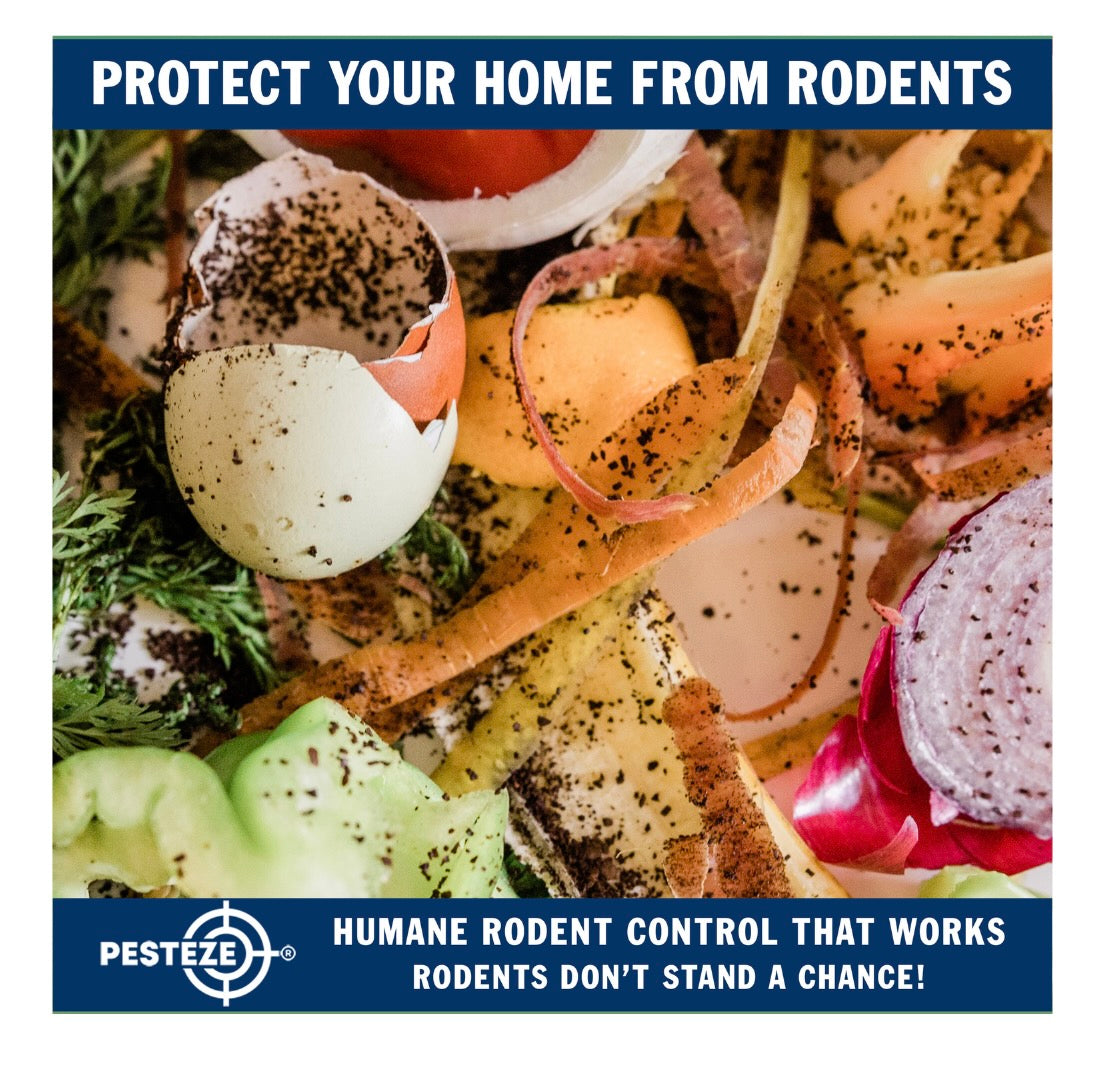RODENTS AND FOOD CONTAMINATION: PREVENTION TIPS FOR HOMEOWNERS

RODENTS AND FOOD CONTAMINATION: PREVENTION TIPS FOR HOMEOWNERS
SUMMARY
Rodents can contaminate food and food-prep areas with dangerous bacteria and viruses. Learn how to keep your kitchen rodent-free and your food safe with essential prevention techniques.
FEATURES
-
Seal Entry Points: Block gaps around pipes, vents, and doors to prevent access.
-
Store Food Properly: Use airtight containers to protect pantry items from contamination.
-
Clean Up Crumbs: Regularly sweep, wipe, and vacuum to remove food debris.
-
Secure Trash Bins: Keep indoor and outdoor garbage tightly sealed.
-
Inspect Food Packages: Look for gnaw marks or damage before use.
-
Monitor for Signs: Watch for droppings, nests, or grease marks near food storage.
DESCRIPTION
Rodents pose a serious risk to food safety in the home. Their droppings, urine, saliva, and fur can contaminate any area they touch, introducing dangerous pathogens like salmonella, hantavirus, and listeria. Preventing food contamination starts with understanding how rodents access your home and what draws them to your kitchen.
The first step in prevention is sealing off potential entry points. Mice can squeeze through openings as small as a dime, so it's critical to inspect your home's exterior and interior for cracks and holes—especially around utility lines, pipes, vents, and doorways. Use steel wool, metal flashing, or caulk to block these access points effectively.
Proper food storage is equally important. Store dry goods such as grains, cereals, and snacks in airtight plastic, glass, or metal containers. Avoid leaving pet food out overnight and ensure food is not sitting uncovered on countertops or in open bags in the pantry.
Cleanliness plays a huge role in deterring rodents. Regularly clean kitchen surfaces, sweep floors, and vacuum under appliances to remove crumbs and spills. Don’t forget to clean behind your stove and fridge—places rodents often frequent undetected.
Trash bins can also be a major attraction. Always use bins with secure lids and empty them regularly. Take out kitchen trash daily, and make sure outdoor trash cans are placed away from entrances and sealed tightly.
Before using food, check packaging for signs of tampering, such as holes, tears, or gnaw marks. If contamination is suspected, it’s safest to discard the product. Also, be alert to common rodent signs like droppings, nesting material, or greasy rub marks along walls and cupboards.
By staying vigilant and maintaining a clean, sealed kitchen environment, homeowners can greatly reduce the risk of food contamination and keep their families safe.
- Nikita Gulrajani


Comments 0